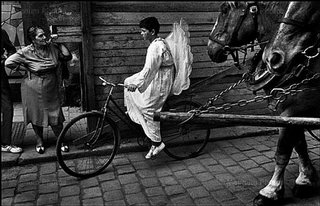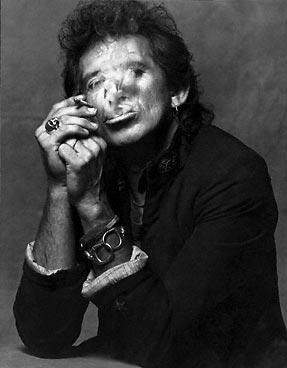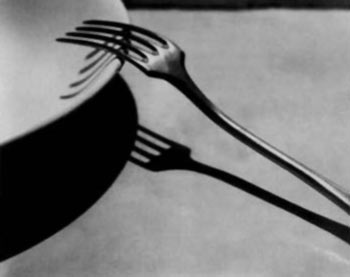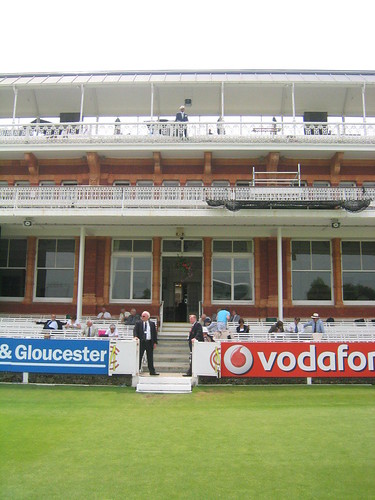As I
grumbled about somewhat incoherently before, I have a big issue with fiction films which dress themselves up as (and are believed by large sections of the populus to be) representations of reality. This
article from the BBC rather, I think, proves my point that these works of art are generally divisive and specious. Here we have an actor (Erich Redman), playing the role of a real human being (Christian Adams) who was murdered, alongside many others, in a terrorist attack, and because there is no documentary evidence of this man's behaviour the actor is encouraged by his director (Paul Greengrass) to improvise his performance. Now if the character were fictional and the plot was fictional I would obviously have no problem with this, but the plain fact is that "
United 93" is selling itself as, and has been critically lauded for being, a fair and even-handed representation of precisely what happened on that fateful day. i.e. it is "the truth" as close as we can fathom it. The BBC article explains:
[Redman's performance] has been criticised for showing a real victim in a bad light with no evidence. But Redman said: "I managed to stay away from the cowardly side."
The film is a reconstruction of United Airlines Flight 93, which apparently crashed before it could reach its target after passengers fought back.
It was based on radio transmissions and mobile phone calls - but there is no record of what Mr Adams did in his final hours.
This is monstrous. Redman has chosen to depict Mr Adams in a potentially derogatory way, simply because his whims as an actor, and the encouragement of his director, led him there. This performance is a complete fiction and by extension, "United 93" is a fiction. It is no more a representation of the facts of terrorists on a plane than "
Die Hard 2".
And yet people will believe that Christian Adams tried to appease the hijackers. If this were not bad enough, as the BBC article makes clear :
His widow did not want to co-operate with film-makers because it was too painful, Redman said.
This raises another question, could "United 93" be guilty of committing a libel against Mr Adams' memory; could his distraut wife sue? Certainly if you allege that someone has behaved inappropriately, the onus is on the accuser to prove in a court of law that what is alleged happened did in fact occur, something which it is clear that the film-makers could not do. One suspects, cynically perhaps, that if this were ever to reach the courts, Paramount would be very quickly hiding behind the fig-leaf of "fictionalisation" despite all their current protestations of accuracy and documentary seriousness.
There is no escaping the unpleasant truth that what we have here is either a misguided attempt to dramatise what occurred with a lot of deliberately imagined details to heighten the drama or worse, a cynical attempt to cash in on the anniversary of the murder of a lot of innocent civilians. It actually doesn't matter which is the truth particularly; the net effect is the same. The family and friends of Christian Adams, who have all already suffered more than anyone should ever have to, now face the besmirching of their lost loved one's memory and quite possibly the public accusation of cowardice from the ignorant who will believe that "United 93" is in some way an accurate depiction of what occurred. I was feeling uncomfortable with these September 11th film projects, but now, certainly in the case of Mr Greengrass' fantasy, I feel nothing but utter revulsion.










